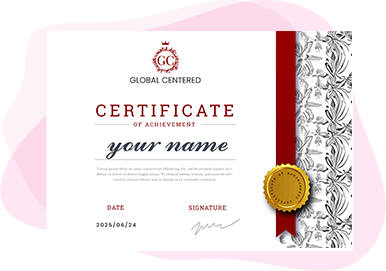GMEDTC-Exploration Drilling Techniques and Core Logging 02
Mar/2025
English
A course by
Description
Introduction
This intermediate course builds upon fundamental drilling knowledge, focusing on advanced drilling methods, core logging techniques, and data interpretation. Participants will gain practical insights into drill core analysis, QA/QC practices, and integrating drilling data for resource estimation.
Date
Day | Time | Price | Country |
|---|---|---|---|
Mon – Wed | 8:00 – 10:00 | $5/hrs | Turkey |
Tue – Thu | 18:00 – 19:00 | $5/hrs | Turkey |
Wed – Fri | 20:00 – 21:00 | $5/hrs | Turkey |
Sat – Sun | 18:00 – 19:00 20:00 – 21:00 | $8/hrs | Turkey |
This Training Course Will Highlight
- Advanced drilling methods and their applications in complex mineral deposits.
- Integration of drilling and core logging data with geological modeling.
- Best practices in sample collection and geochemical analysis.
- Geotechnical logging and rock mass characterization.
- Exploration risk assessment and drilling cost management.
Objectives
- Understand the fundamentals of exploration drilling and core logging.
- Learn the different drilling techniques and their applications.
- Gain knowledge of core logging procedures and lithological descriptions.
- Develop an understanding of sampling protocols and QA/QC in drilling.
- Recognize the role of drilling data in resource estimation.
Training Methodology
- Instructor-led lectures on drilling fundamentals.
- Practical core logging demonstrations.
- Hands-on exercises in drill core sample handling.
- Discussion of real-world drilling operations in phosphate, gold, and bauxite deposits.
- Field-based problem-solving case studies.
- Case Study: Drilling program for a phosphate or gold exploration project.
Organizational Impact
- Enhances efficiency in mineral exploration programs.
- Improves drilling success rates and cost-effectiveness.
- Strengthens technical understanding of exploration drilling workflows.
- Supports better core logging and data collection practices.
- Reduces exploration risks by improving drill program planning.
Personal Impact
- Develops fundamental skills in core logging and sample analysis.
- Improves knowledge of drill rig operations and drilling techniques.
- Strengthens understanding of geological structures from core samples.
- Expands career opportunities in mineral exploration and resource geology.
- Builds confidence in drill hole planning and geological interpretation.
Who Should Attend?
- Entry-level geologists and drilling supervisors.
- Junior exploration staff in mining companies.
- Drilling technicians and core logging assistants.
- Government mining and geological survey personnel.
- Undergraduate geology and mining students.
- Environmental specialists involved in drilling impact assessments.
- Technical staff in geological survey organizations.
Course Outline
Day 1
Advanced Drilling Techniques and Applications- Comparison of drilling techniques – advantages and limitations.
- Deep drilling and directional drilling for complex mineral deposits.
- Hydraulic fracturing and borehole stability issues in drilling.
- Application of wireline core retrieval systems.
- Managing drilling operations in remote and challenging environments.
- Deep drilling for gold exploration in structurally complex terrains.
Day 2
Advanced Core Logging and Structural Analysis- Advanced lithological logging techniques.
- Geotechnical logging – rock strength, fracture analysis, and RQD assessments.
- Structural interpretation from drill core data.
- Identifying ore mineralization and alteration patterns in core samples.
- Use of geochemistry and petrology in core logging interpretation.
- Structural logging of a gold-bearing shear zone.
Day 3
Integration of Drilling Data with Resource Estimation- Data validation and quality assurance in core logging.
- Using drilling results in 3D geological modeling.
- Ore body delineation and reserve estimation using drill data.
- Statistical analysis of drill core assay results.
- Best practices for integrating drilling data into feasibility studies.
- Resource estimation for a phosphate deposit using drill data.
Day 4
Core Sample Preparation, QA/QC, and Assay Data Management- Drill core cutting, splitting, and sample preparation for laboratory analysis.
- Understanding sample contamination and cross-contamination prevention.
- Best practices for QA/QC in drilling projects – duplicates, blanks, and standards.
- Handling, storage, and chain of custody for drill core samples.
- Assay data verification and validation before geological modeling.
- QA/QC protocol implementation in a bauxite exploration program.
Day 5
Drilling Safety, Environmental Management, and Reporting Standards- Drilling safety procedures – risk assessment and hazard identification.
- Environmental impact of drilling operations and mitigation measures.
- Drill site rehabilitation and minimizing ecological damage.
- Compliance with JORC, NI 43-101, and other resource reporting standards.
- Creating high-quality technical reports from drilling results.
Cancellation policy
no refund is accepted
Certificate


Free
Skill level Intermediate
100% positive reviews
Language: English
Assessments: Self
Step Into a World of Knowledge and Growth
Imagine a place where learning is not just about theory
Courses you might be interested in
Introduction This advanced-level training program is designed for senior geologists, drilling engineers, and resource geologists who seek to enhance their expertise in high-resolution core logging, advanced drilling methods, geotechnical data...
-
0 Lessons
Free
Introduction This course provides a fundamental understanding of exploration drilling techniques and core logging used in mineral exploration. Participants will learn the different drilling methods, their applications, and how to...
-
0 Lessons
Free
Free

